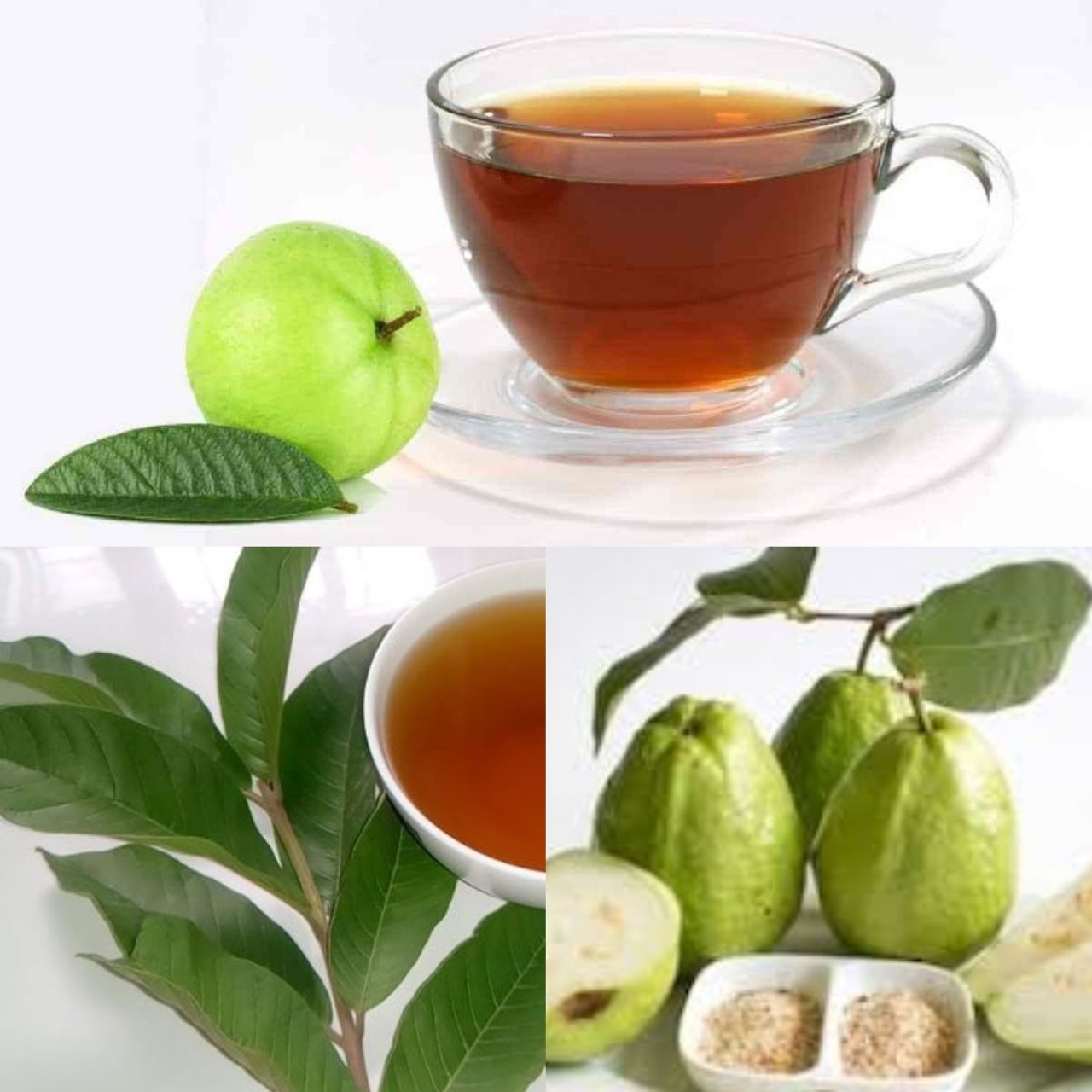ADVERTISEMENT
## Variations and Flavor Combinations
Guava leaf tea has a mild, earthy flavor that pairs well with other herbs and additions. Here are some popular ways to customize it:
### 1. Ginger and Lemon Guava Tea
Add fresh ginger slices and a squeeze of lemon for an invigorating, immune-boosting twist.
### 2. Honey Sweetened Guava Tea
A teaspoon of honey adds natural sweetness and additional antibacterial benefits.
### 3. Mint and Guava Leaf Tea
Mix in fresh mint leaves for a refreshing, cooling effect.
### 4. Green Tea and Guava Leaf Blend
Combine green tea leaves with guava leaves for an antioxidant-rich infusion with a subtle grassy flavor.
—
## When to Drink Guava Leaf Tea
* **Morning boost:** Start your day with a warm cup to aid digestion and metabolism.
* **After meals:** Helps reduce bloating and promotes gut health.
* **Before bed:** Its soothing properties can relax you for restful sleep.
* **When feeling under the weather:** Supports immune defense and eases throat irritation.
—
## Potential Side Effects and Precautions
While guava leaf tea is generally safe, here are some considerations:
* **Allergies:** Rarely, some may be allergic to guava or related plants. Stop use if you notice rash or discomfort.
* **Pregnancy and breastfeeding:** Consult a doctor before using guava leaf tea during pregnancy or breastfeeding.
* **Medication interactions:** If you’re on medication for diabetes or blood pressure, discuss with your healthcare provider before consuming regularly.
* **Overconsumption:** Drinking excessively may cause constipation or low blood sugar.
—
## Scientific Research Supporting Guava Leaf Tea Benefits
Numerous studies have explored the bioactive compounds in guava leaves and their health effects:
* A 2011 study in the *Journal of Medicinal Food* found that guava leaf extract significantly reduced blood glucose levels in diabetic rats, indicating potential for managing type 2 diabetes.
* Research published in *Food Chemistry* showed that guava leaves contain potent antioxidants that protect cells from oxidative stress.
* Another study in the *International Journal of Pharmacy and Pharmaceutical Sciences* highlighted the antimicrobial properties of guava leaf extracts against common bacterial pathogens.
These findings validate the traditional uses of guava leaf tea and encourage its integration into modern wellness routines.
—
## Growing Your Own Guava Tree for Fresh Leaves
If you live in a suitable climate (USDA zones 9-11), growing a guava tree at home is a rewarding way to ensure a steady supply of fresh leaves.
### Tips for Growing Guava
* **Plant in full sun:** Guava trees thrive with at least 6 hours of direct sunlight daily.
* **Well-drained soil:** They prefer slightly acidic to neutral soil with good drainage.
* **Water regularly:** Keep soil moist but not waterlogged, especially during dry spells.
* **Prune:** Regular pruning encourages bushy growth and leaf production.
* **Harvest leaves:** Pick young to medium leaves for the best flavor and health benefits.
—
## How to Dry Guava Leaves for Tea
Drying your own leaves is simple and preserves their medicinal properties:
1. Wash the leaves thoroughly.
2. Spread them on a clean towel or mesh screen in a shaded, well-ventilated area. Avoid direct sunlight to prevent nutrient loss.
3. Allow the leaves to dry for 7-10 days until they are crisp.
4. Store dried leaves in an airtight container away from light and moisture.
—
## Frequently Asked Questions (FAQs)
**Q: Can guava leaf tea cure diseases?**
A: While guava leaf tea offers health benefits and may aid in managing certain conditions, it is not a cure for diseases. Always consult a healthcare provider for medical treatment.
**Q: Does guava leaf tea taste bitter?**
A: When prepared correctly, it has a mild, slightly earthy taste. Oversteeping can cause bitterness.
**Q: Can children drink guava leaf tea?**
A: Generally safe in moderation, but consult a pediatrician first.
**Q: How often should I drink guava leaf tea?**
A: Drinking 1-2 cups daily is common for health benefits.
—
## Conclusion
Guava leaf tea is more than just an herbal beverage — it’s a time-tested remedy packed with powerful compounds that support digestion, blood sugar regulation, immunity, and overall well-being. Easy to make with fresh or dried leaves, it offers a delicious, calming experience that can seamlessly fit into your daily routine.
Whether you’re seeking natural ways to enhance your health or simply enjoy a soothing cup of tea, learning how to make guava leaf tea is a simple and rewarding step. With the information and tips provided here, you’re ready to brew this healing tea in your own kitchen and experience its wonderful benefits firsthand.
Cheers to your health and wellness, one cup of guava leaf tea at a time!
—
If you’d like, I can also provide printable recipe cards or a guide on sourcing guava leaves near you. Just ask!
